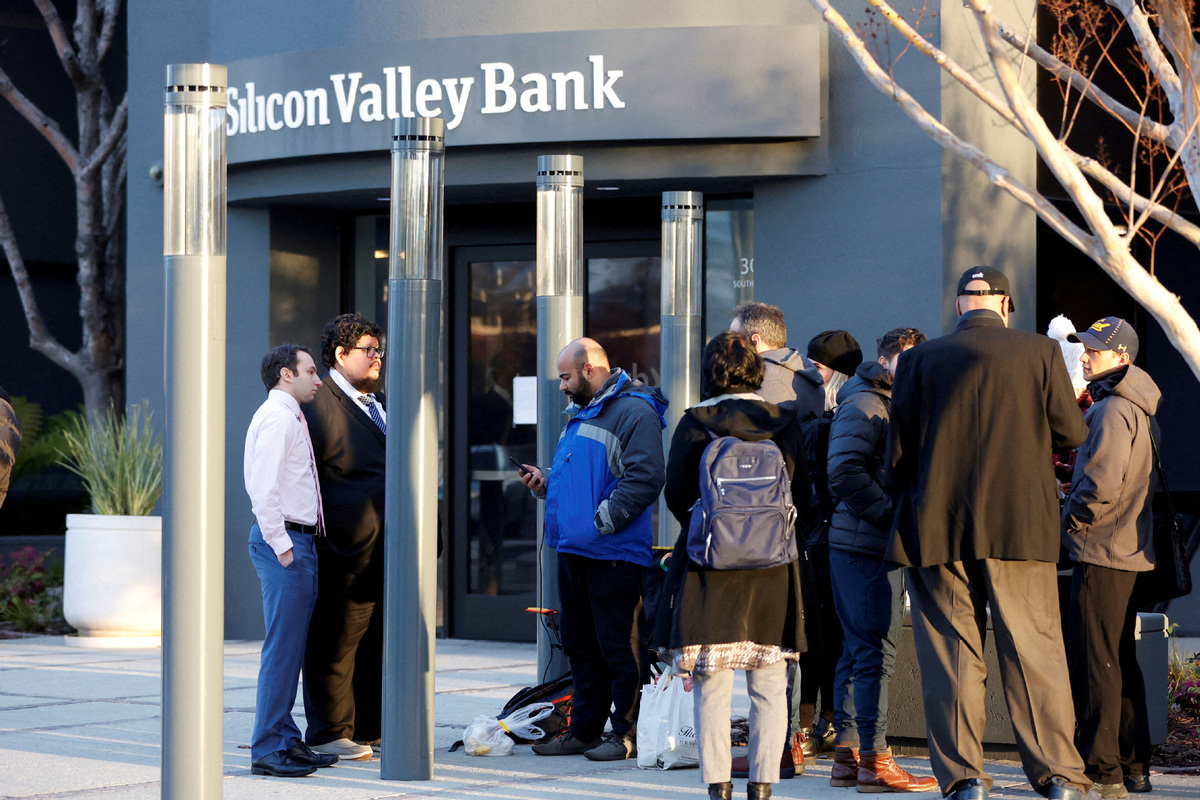Concerns rise as major developed economies rapidly hike interest rates
By Jiang Xueqing | chinadaily.com.cn | Updated: 2023-03-18 16:20

The rapid interest rate hikes taken by major developed economies to curb inflation have raised concerns about their impact on the global economy and the possibility of triggering new financial risks.
"Recent risks exposed by a few banking institutions in the United States and Europe indicate that the rapid adjustment of monetary policy in major developed economies has both spill-over effects and internal influences," said Xuan Changneng, deputy governor of the People's Bank of China, the country's central bank.
The prolonged low-interest-rate environment in the past has made some financial institutions accustomed to managing assets and liabilities in a low-volatility interest rate environment, lacking expectations and sensitivity to short-term and large fluctuations in interest rates. The asset-liability characteristics of Silicon Valley Bank made it more sensitive to interest rate changes and ultimately led to risk, said Xuan at the Global Asset Management Forum 2023 Annual Conference on Saturday.
"Currently, there is uncertainty as to whether inflation in major developed economies could significantly fall in the short term. Maintaining a high level of interest rates may also have adverse effects on the stable operation of the financial system, which increases the dilemma faced by monetary policy regulation," he said.
Wealth management and asset allocation are highly sensitive to changes in these important macroeconomic variables. The increasing uncertainty and instability factors will intensify the challenges faced by global wealth management, he added.
Xia Xiande, China's vice-minister of finance, said all countries need to guard against the gradual emergence of financial risks as the global high-interest-rate environment may continue in the future.
To curb inflationary pressures, major central banks kept raising interest rates rapidly, and global market liquidity tightened fast, marking the end of more than a decade of low interest rates. The risks for some market participants, which had previously expanded rapidly and had high leverage and excessive mismatches in asset-liability maturity, have increased, said Xia on Saturday.
In the complex and changing environment, China's open, stable and developed market provides the world with diversified opportunities and choices, said Xuan with the PBOC.
"As China's economic growth momentum gradually recovers and the financial market further opens up, we believe that the investment attributes and hedging attributes of Chinese financial assets will become more prominent," said Xuan.
Although the collapse of Silicon Valley Bank and two other regional banks in the US have raised market concerns, some guest speakers of the annual conference of the Global Asset Management Forum still believe that the failure of these banks are more one of a kind than a sign of a coming trend.
Howard Marks, co-chairman of Oaktree Capital Management, said these banks were highly concentrated in a small number of asset classes or a small number of types of depositors, and very concentrated by region. In other words, they have a lot of eggs in one basket.
"I personally believe that we will not have serious contagion and a systemic impact on the economy," said Marks, noting that Silicon Valley Bank is an unusual case.
"In the global financial crisis, the banks put a lot of money into highly leveraged, structured vehicles. I don't see any analog today to the subprime mortgages in our economy or financial system. There is no collateral as weak as that was. So, I think we are not going to see a repeat of that," he said.
























